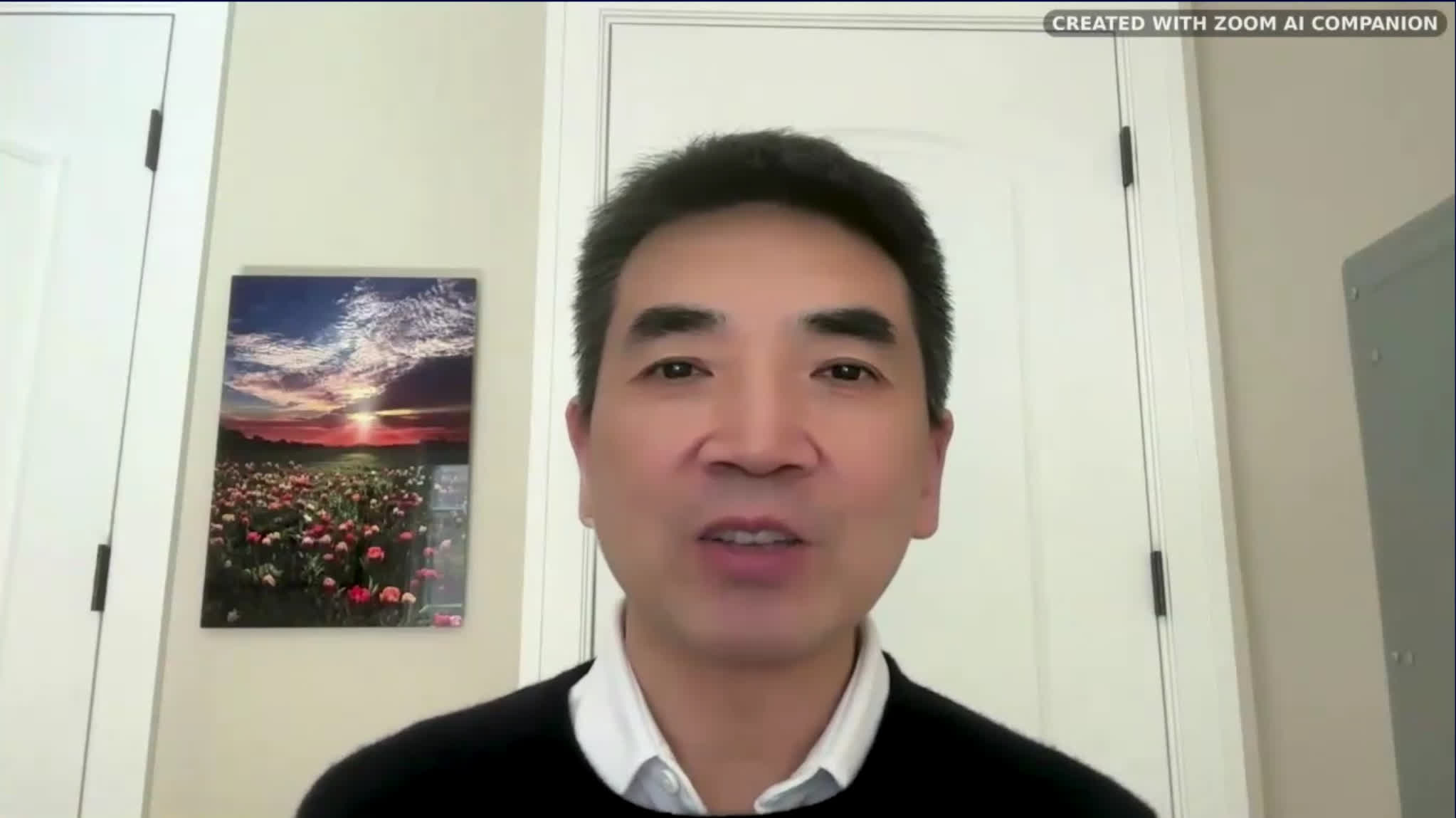A hot potato: As if we didn't already know how much CEOs love the job-cutting, cost-slashing, investor-pleasing benefits of AI, chief executives are now using the technology to create avatars of themselves in earnings calls. Klarna's CEO recently did it, and now Zoom CEO Eric Yuan has followed suit.
Yuan used an AI avatar of himself via Zoom Clips, the company's asynchronous video creation tool. The clip, which you can see here at around the 2:40 mark, shows a realistic-looking recreation of the CEO speaking to the camera.
While it might be hard to tell that this isn't the real Yuan when the clip is paused, it's fairly obvious that something is off when he starts speaking. His mouth looks a little like somebody else's moving lips have been superimposed onto his face. Then there are the eyes, which are eerily unmoving and seem to be blinking in an almost set pattern.
"I am proud to be among the first CEOs to use an avatar in an earnings call," he said. "It is just one example of how Zoom is pushing the boundaries of communication and collaboration. At the same time, we know trust and security are essential. We take AI-generated content seriously and have built in strong safeguards to prevent misuse, protect user identity, and ensure avatars are used responsibly."
Zoom's custom AI feature lets users create photorealistic doppelgangers of themselves inside Zoom Clips. It was launched in April 2025 as part of the paid Custom AI Companion add-on, and is now rolling out to all Zoom Workplace customers and can also be purchased as a standalone product. Users film a short calibration video, type a script of what they want to say, and then an avatar is created with automatic lip-syncing and voice cloning.
While Yuan's avatar use was related to a Zoom product, he isn't the first CEO to use the technology in an earnings call. Sebastian Siemiatkowski, CEO of buy now, pay later firm Klarna, presented an earnings report using an AI-generated avatar. The company said it has used artificial intelligence to help cut costs, though he previously admitted AI customer service agents offered a "lower quality" output compared to humans.
Beyond the deepfake dangers, the use of these avatars is another step toward a future that could see AIs conversing with other AIs on our behalf. Last week, Google revealed that its new personalized smart replies are able to draw information from users' files to compose large portions of emails in a person's writing style.
The CEOs of Zoom and Klarna have presented earnings calls using AI avatars
